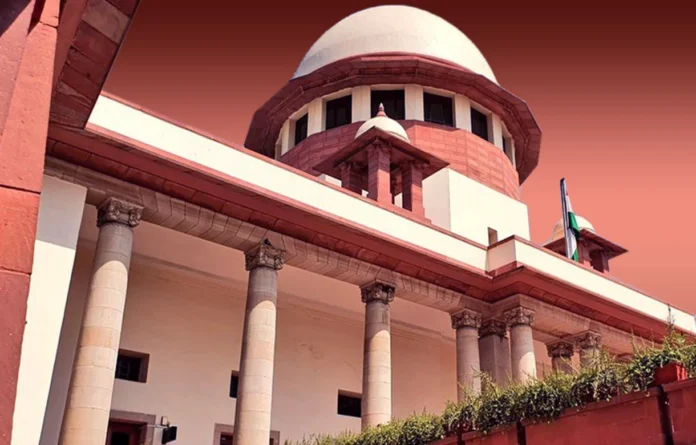The Supreme Court on Tuesday dismissed the petitions filed by the Enforcement Directorate challenging a Bombay High Court order, which granted bail to NCP MLA Chhagan Bhujbal and his nephew Sameer in the Maharashtra Sadan scam case.
The Bench of Justice Abhay Oka and Justice Ujjal Bhuyan observed that no case for interference could be made out under Article 136 of the Constitution of India at this stage as the High Court granted bail to Bhujbal and Sameer in 2018.
The Apex Court further disposed of a petition filed by Bhujbal against the Bombay High Court’s 2016 judgment rejecting challenge to his arrest in the money laundering case.
The top court of the country observed that since the petitioner was granted bail in 2018, it was not necessary at this stage to go into the question of illegality of the arrest.
The issue, however, would remain open for the petitioner, to be contested at an appropriate stage in an appropriate petition, it added.
Bhujbal, a former Deputy Chief Minister of Maharashtra and current MLA from Yeola Constituency, had joined the Ajit Pawar camp, after the split of NCP.
In May 2018, the High Court granted bail to Bhujbal, imposing several conditions, including surrendering his passport and not leaving Mumbai without permission.
ED had arrested Bhujbal on March 14, 2016, under Section 3 read with Section 4 of the Prevention of Money Laundering Act (PMLA), following allegations of irregularities in awarding contracts for the construction of Maharashtra Sadan in Delhi and Kalina Library at Mumbai University during his tenure as Maharashtra Public Works Department Minister.
Bhujbal was booked in two FIRs under Sections 420, 471, 120B read with 34 of IPC and Section 13(1)(A), 13(1)(D), 13(2) of Prevention of Corruption Act; and for the offences punishable under Section 420, 120B, 109, 465, 468, 471 read with 34 of IPC and Section 13(1)(C), 13(1)(D) and 13(1) of Prevention of Corruption Act respectively.
The Anti-Corruption Bureau (ACB) filed a charge sheet alleging Bhujbal and his family laundered approximately Rs 900 crore. On the basis of this, a money laundering case under PMLA was registered against Bhujbal.
The accused challenged his arrest on grounds of its alleged illegality, citing violations of his fundamental rights under Articles 19 and 22 of the Constitution. He argued that ED failed to provide proper grounds for the arrest and highlighted the absence of an FIR under the PMLA.
On December 14, 2016, the High Court dismissed Bhujbal’s habeas corpus petition on the grounds that his arrest and remand were neither wholly illegal, nor without jurisdiction.


